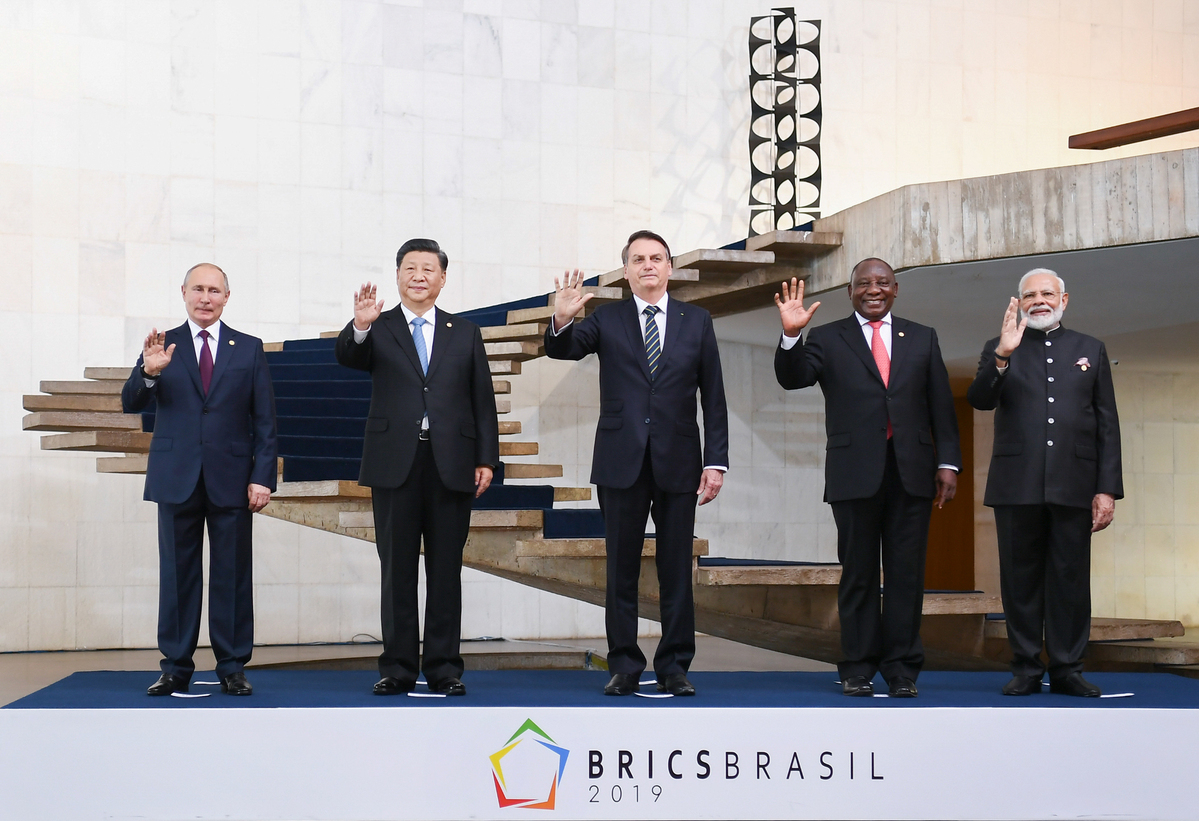Xi urges BRICS countries to champion multilateralism


"All in all, China will work with the rest of the international community toward the goal of building a new type of international relationship and of building a community with a shared future for mankind," he said.
At a closed-door session also on Thursday, Xi pointed out that BRICS solidarity and cooperation appears to be accidental, but in fact represents a historical necessity, as it conforms to the trend of the development of human society and the evolution of the international situation.
The growth of the BRICS countries is influencing the speed, scope and depth of the adjustment of the international structure and fundamentally changing the political and economic landscape of the world, Xi said.
No country is born to be dominant, and no model is destined to be superior, said Xi, adding that in the era of globalization it should not be some people fighting against other people, but should instead be all bringing benefits for all.
Reiterating the need to uphold multilateralism, Xi said the essence of multilateralism is that international affairs should be addressed through extensive consultation rather than decided by one country or a few.
China, he added, backs necessary reforms of the WTO, and adheres to its core values and fundamental principles, including the "special and differential treatment" for developing countries.
Maintaining stability is a prerequisite for achieving development and prosperity, Xi stressed, saying that external intervention has intensified the unrest in many developing countries and regions.
Xi urged the BRICS countries to be more alert on this regard, enhance strategic communication, cooperate to deal with risks and challenges, and firmly safeguard their national sovereignty, security and development interests.
The BRICS countries, he added, should heighten the sense of mission and urgency, and push forward cooperation in various areas, so as to open up a brighter future for their people, for the emerging markets and developing countries in general, and for world peace and development.
The 11th BRICS summit was chaired by Brazilian President Jair Bolsonaro. Russian President Vladimir Putin, Indian Prime Minister Narendra Modi and South African President Cyril Ramaphosa also attended the summit.
Focusing on the theme of "BRICS: economic growth for an innovative future," the leaders had in-depth exchanges of views and reached broad consensus on BRICS cooperation and major global issues of shared interest.
Leaders of the other four BRICS countries agreed that the rise of protectionism and unilateralism constitutes a threat to the sovereignty and security of all countries.
The BRICS nations, they said, should enhance communication and coordination to uphold the purposes and principles of the UN Charter, preserve the international order based on international law, safeguard the fair, transparent and open multilateral trading system, and defend the common interests of emerging markets and developing countries.
They also called for respect for every country's independently chosen development path, opposition to external intervention, commitment to solving disputes through dialogue, more trade and investment facilitation measures, and closer cooperation in such fields as technological innovation and biodiversity protection.
A declaration of the summit was issued on Thursday.
The 12th BRICS summit will be held in Saint Petersburg, Russia, in 2020, according to the declaration.
























